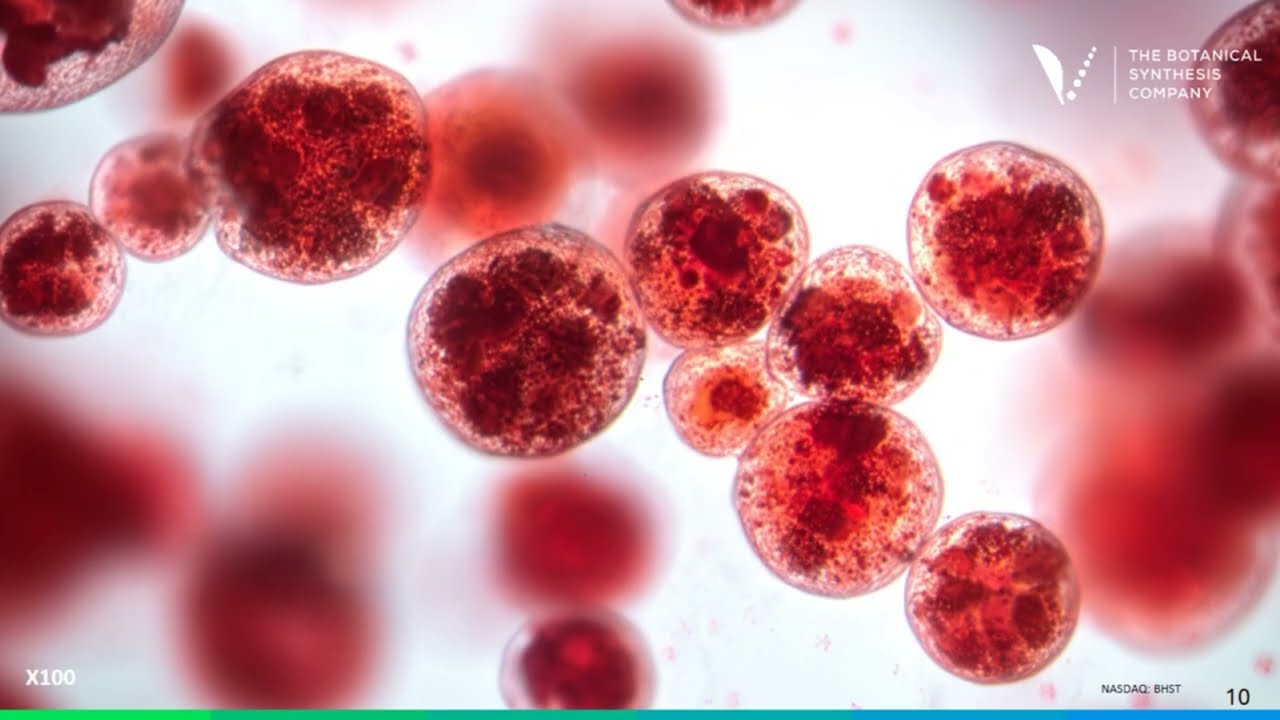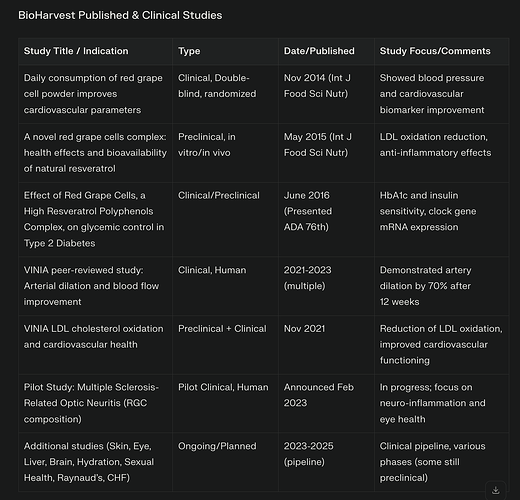Bioharvest Sciences BHST is a Canadian microcap company which says they are the first company to synthesize plant exomes. They also call this “botanical synthesis technology” and the compound is made a physical device called a bioreactor. The number of bioreactors has been scaling up both on quantity, and size of the reactors.
On September 10th they announced the scale of their scientific breakthrough. They have a video of call with slides which I will link below, and the transcript was also available from my data provider. One of their underlying compounds is based off of grapes and consuming the compound increases blood flow and cardiovascular health as shown in multiple peer reviewed scientific studies. They are launching an electrolyte drink in October in addition to already having teas, chews, and capsules which can be purchased from Amazon. Consuming these products offers the equivalent health benefits of consuming 2,000 grapes or 2 bottles of wine - without all the sugar and alcohol or side effects.
Additionally, the company has a CDMO or contract manufacturing business that is working with pharma companies, cosmetics, and nutritional companies. Their CDMO business has advanced a therapeutic drug to stage 2 FDA approval, and they have a 100% “technical success rate” when compounds complete stage 1.
On the narrative side here’s a few of the more impressive statements gathered from the September 10 announcement and their prior earnings,
- “Will change the world of health and wellness for hundreds of millions of people whilst preserving the planet for generations to come” (at first I saw this as over the top language, but it seems like they believe this)
- “Life changing compounds on plants at the cell level”
- “Very powerful new revenue stream for CDMO customers”
- “Pharmaceutical-grade delivery systems, nutraceuticals, and importantly breakthrough cosmetic formulations”
- “Plant exomes are one of the hottest subjects amongst cosmetic companies”
- “No other company in the world that handles the quantum scale of bioreactors that we handle. This is number one”
- On electrolyte markets, “So it’s a monster market for us to access with the right disruptive proposition”
- “Limited with the announcements because those pharma companies or other biotech entities are very careful as they wanted to disrupt the existing supply chain and which is in some cases, we are the replacement of this supply chain”
- “Botanical synthesis is no longer just a breakthrough technology. It’s a commercial platform with expanding utility across multiple high value verticals”
- “Customers that are finding us are totally intrigued, overwhelmed by the technology and then start to understand what it could actually do for their respective businesses”
Here’s how the numbers look for BioHarvest,
Revenue: 6.0M → 6.5 → 7.3 → 7.9 → 8.5
Yoy revenue growth rate 119% → 102% → 61% → 47% → 41%
Gross margin 51% → 57% → 57% → 58% → 60%
EBITDA -1.4M → -1.8 → -1.6 → -1.3 → -1.4
Net income -0.7M → -2.7 → -3.0 → -2.3 → 4.1
Cash 3.7M, Debt 21.1M, Market cap 161M (they announced yesterday they paid back some debt as well)
From my point of view the stock shows up a bit stronger on the narrative side overall. While the revenue growth is 41% yoy on the latest quarter, their yoy growth rate has come down over the past year. However, gross margin has a perfect upwards trend. I’m also buying the company’s explanation about scaling up for now as profitability catches up. The company did mention they are targeting adj EBITDA profitability by the end of the year.
Overall, I’m very impressed with the product so far. When I was investing in Celsius and the health of their product came, it seemed that Celsius paid for some bogus scientific studies years back to claim health benefits. BioHarvest seems to be doing it the right way, creating an actual scientific company and proving the health benefits through science rather than purely marketing as Celsius did.
I have a video on my channel which goes more in depth on BioHarvest, along with a couple other microcaps that I have invested in recently. I’ll also link to the September 10th special call, and a couple promotional videos the company has shared from their Youtube channel. One of these is partnering with former NFL players on their product as they target the pro athlete market.
Any feedback is welcome. Also please keep in mind this is a low volume microcap. If you are uncomfortable with the risk profile of companies this low on market cap and volume make sure to take that into consideration.





